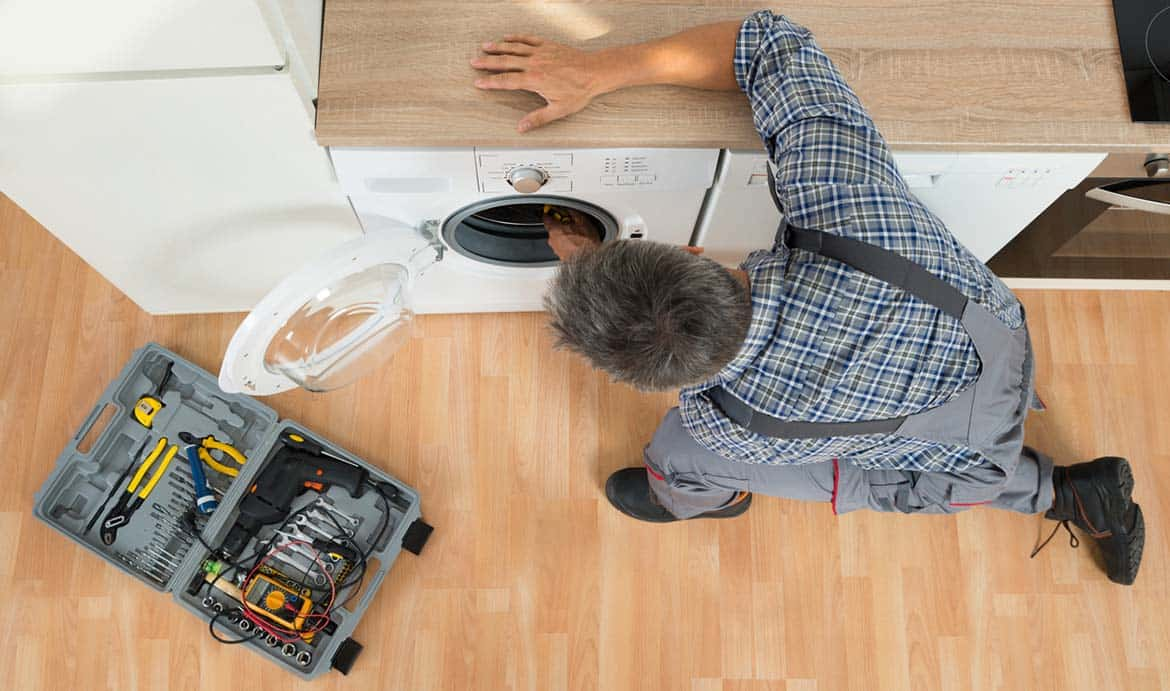
How to recycle kitchen appliances
Fridge on the blink? Washing machine got you in a spin?
Whether your kitchen appliances have come to the end of their useful life, or you’ve gone for an upgrade, here are some easy ways to dispose of your appliances without causing harm to the environment.
Before recycling your kitchen appliance, consider whether it can be repaired. Search online for a local repair service – it may be that a quick fix is all that is needed to get your appliance back in working order and could work out cheaper than buying a replacement.
With the ‘Right to Repair’ law, it’s becoming even easier to look after what we have. Under the new standards, which apply to washing machines, dishwashers, fridges and televisions, companies will have to ensure their appliances are long-lasting and will be required to supply spare parts for up to 10 years.
Espares and iFixit have user guides or, for smaller appliances, try a repair café.
If your home appliance is still in good condition and in working order, there may be a reuse organisation in your area offering a collection service – use our Reuse Tool to find out more.
Second-hand appliances are also often in high demand on sites such as Facebook Marketplace or Gumtree.
Before recycling your kitchen appliance, consider whether it can be repaired. It may be that a quick fix is all that is needed to get your appliance back in working order. #HowToWasteLess
Share on

Recycling your bulky kitchen appliances
If your appliance has reached the end of its life and is unable to be repaired, then it’s important that it is disposed of responsibly as Waste Electrical and Electronic Equipment (WEEE).
A wide variety of materials go into making electrical and electronic equipment, many of which can be reused. By recycling old appliances you’re stopping potentially hazardous waste from ending up in landfill where they could contaminate soil and waterways.
Often retailers will offer a disposal service for large household appliances when you buy a replacement. There may be a fee for taking your old appliance away when delivering the new one.
Your local household waste recycling centre may accept white goods and kitchen appliances. Use the recycling locator to find out more.
Kitchen appliances can be big and bulky so if you’re unable to transport the item yourself, contact your local council to find out if they offer a bulky waste recycling collection service.
Some local authorities collect small WEEE appliances, like irons and hairdryers, with kerbside recycling. Check with your council to find out if a kerbside collection is available.
Can your appliance be recycled?
If your appliance has a plug, uses a charger or batteries, or has a picture of a crossed-out wheelie bin on it, then it can be recycled.
This applies to large household appliances and small appliances like irons, toasters and kettle as well as IT equipment, audio-visual equipment, electric power tools and personal care gadgets. Gas cookers should be recycled with metal at your local recycling centre.
If your appliance has a plug, uses a charger or batteries, or has a picture of a crossed-out wheelie bin on it, then it can be recycled. #HowToWasteLess
